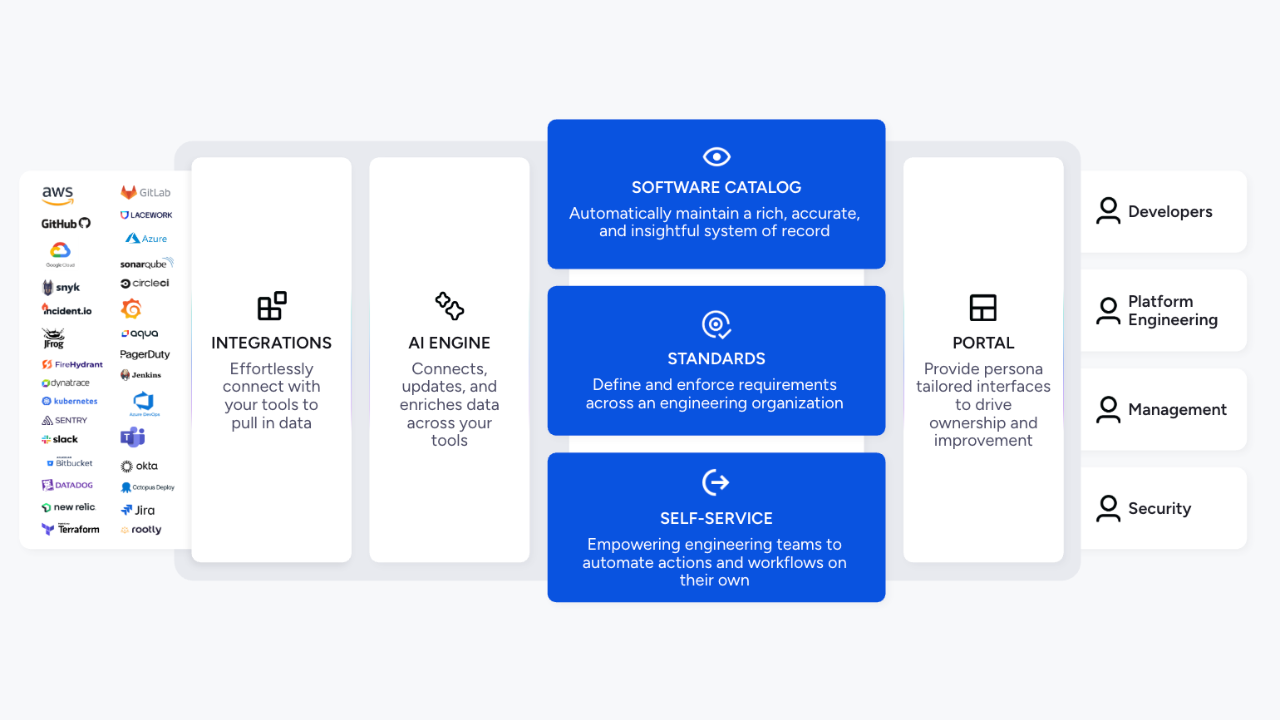Introducing OpsLevel
The Fast-Track to Engineering Visibility, Standards, and Self-Service.
What is OpsLevel?
OpsLevel is the AI-powered internal developer portal that catalogues every element of your software ecosystem in minutes, enforces standards automatically, and unblocks engineers with one-click self-service—all from a single pane of glass.

The OpsLevel Internal Dev Portal
Find & trust every component in minutes
Stop hunting through tribal knowledge. OpsLevel’s Catalog Engine discovers services from Git, Kubernetes, CI/CD, and cloud providers—then fills the gaps with AI-generated descriptions and owners.
How it works
- Connect a repo (GitHub, GitLab, Bitbucket, or Azure)
- Optional: Drop in a opslevel.yml file for rich metadata
- AI-Powered Catalog Engine auto-maps relationships and flags unregistered services
👉 Want to get a deeper dive with our product experts?Book a demo
Prove—and improve—standards automatically
With Scorecards & Checks, every service gets a living report card. OpsLevel ships 80+ checks out-of-the-box (security, reliability, compliance) and even suggests new AI-generated checks based on your repos.
Why it works
- Real-time dashboards show red-to-green progress
- Campaigns automate org-wide fixes—no spreadsheets
- Alert integrations nudge owners in Slack or Teams
Key elements of OpsLevel's Software Component Maturity framework include:
- Automated checks that can streamline acquiring key information about the quality or configuration of a component
- A Rubric and Scorecards that provide structure to your checks, making it easy for software component owners to understand how their checks correlate to one another and roll up into an overall Component Level.
- Campaigns that make it easy drive and measure the progress of adopting new standards, upgrading libraries or other initiatives.
- Aggregated reporting across all of your software components, teams and domains.
Unblock developers with one-click self-service
Shipping shouldn’t wait on a Jira ticket. Actions turn runbooks into safe, reusable buttons—complete with optional approval flows.
Popular use cases
- Deploy-freeze override → BigPanda cut approvals from 90 min to ~2 min
- Spin up a new microservice scaffold
- Create a compliant S3 bucket via Terraform
- Rollback a bad release
Approvals can route to Slack, email, or PagerDuty, and every Action is version-controlled alongside your code.
Learn more about Actions Guide: Actions Overview
Try it yourself
Want to get a deep dive demo? Book a demo
Updated 6 months ago
